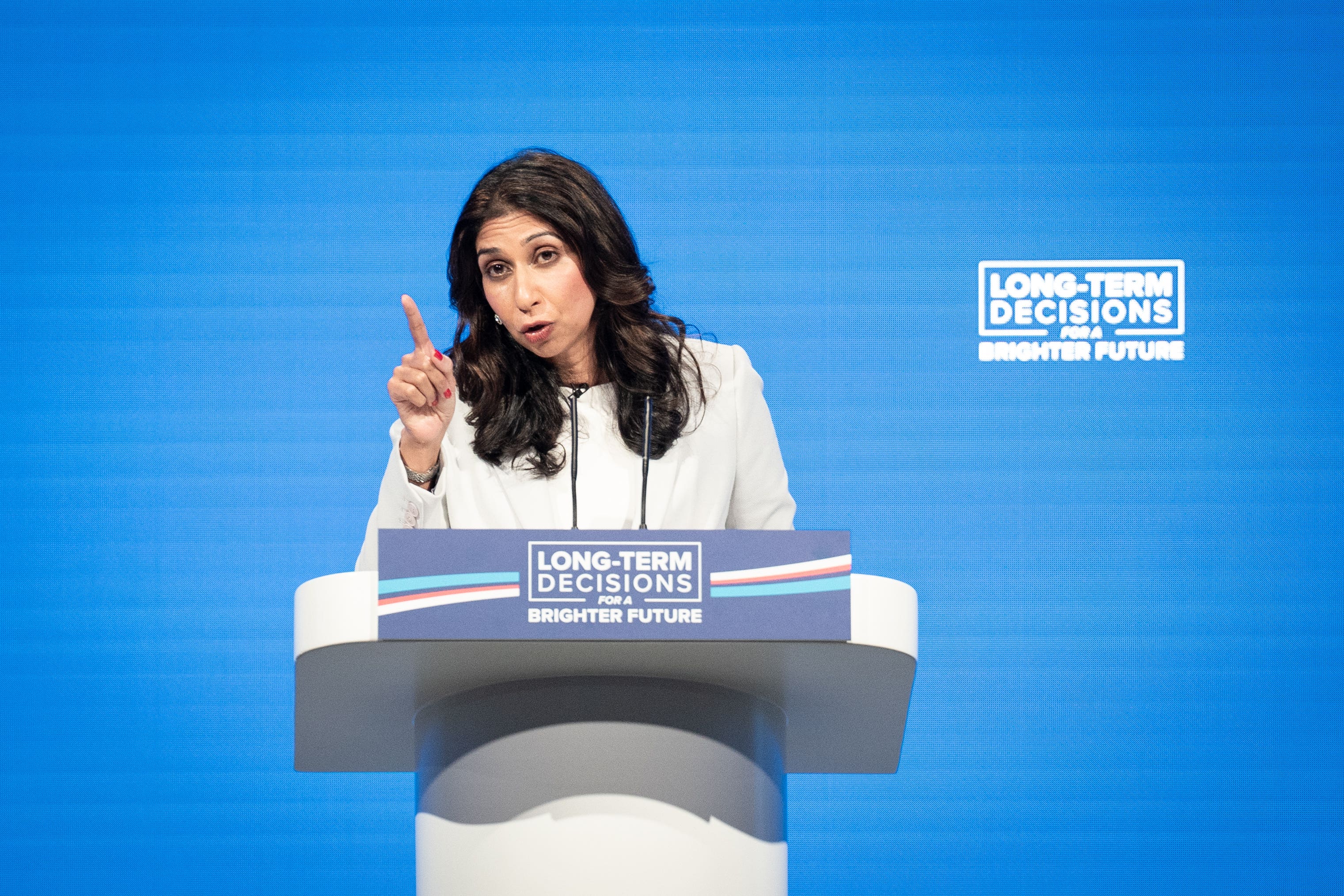Politicians are stoking ‘culture wars’ – with trans people caught in the crossfire
Editorial: Arguments about trans rights have become louder and more strident, with language that can be insensitive, insulting, hurtful – and, as has now come to light, directly harmful

One of the many problems of our political parties engaging in various “culture wars” is that LGBT+ people can get hurt in the crossfire. This is no hyperbole. The latest report on hate crimes against transgender people from the Home Office specifically refers to the hostile climate created by the tenor of public debate.
The Home Office – presided over by the fanatically anti-woke Suella Braverman – has taken the highly unusual step of raising the way current conversations have affected the lives of perfectly innocent people: “Transgender issues have been heavily discussed by politicians, the media and on social media over the last year, which may have led to an increase in these offences, or more awareness in the police in the identification and recording of these crimes.”
Carefully worded as it is, the meaning is clear: politicians, high-profile celebrities and journalists may have contributed to a more permissive attitude to attacks on trans people.
Common sense tells us that there is a link, and the increase in reported offences – with a probably far larger penumbra of unrelated casual slurs – is no coincidence. Arguments about trans rights have become louder and more strident, with language that can be insensitive, insulting and hurtful, whether intentionally or not.
It is all the more disappointing, therefore, that the Conservative Party conference was so characterised by intolerant attitudes and careless language. No doubt, for example, the prime minister was trying to inject some perspective into things when he declared: “We shouldn’t get bullied into believing that people can be any sex they want to be – they can’t. A man is a man and a woman is a woman. That’s just common sense.”
It was a strange remark because Mr Sunak is known for his good manners and generally liberal social attitudes – he also praised his predecessors in government for implementing gay marriage.
Mr Sunak must also be well enough briefed to understand that it’s not biological sex that is at the centre of the issue, but gender identity – a very different thing. Mr Sunak’s formulation might have been his smart way of telling his highly partisan audience what they wanted to hear while preserving the essence of much government policy and operation of the law on equality and discrimination.
In any case, the tone was dismissive and disdainful, and unworthy of him. Too many platform speakers, let alone contributors to TV channels such as GB News – and on social media – are striking increasingly intolerant attitudes towards LGBT+ people.
Take the ejection from the conference hall of the veteran Tory activist Andrew Boff. Mr Boff is the leader of the Conservative group in the Greater London Assembly. His “crime” was to say something during Suella Braverman’s speech – alleged to be a heckle but in reality, spoken at a normal conversational level and to all intents and purposes unobtrusive.
He had been offended by Ms Braverman’s earlier speech in America suggesting that “bogus” refugees were using their sexuality or identity to gain asylum. Quite apart from being disproved by the statistics, she introduced an unnecessarily homophobic element to debates about human rights. When Ms Braverman started to talk about “gender ideology” as “poison”, Mr Boff said the comments were “trash” because “there’s no such thing as gender ideology”. For that, he was bundled away.
Some may say that Ms Braverman and the health secretary Steve Barclay weren’t wrong to raise the issue of trans women using female wards in hospitals. But they adopted harsh and unsympathetic language – and it is not even close to being the most formidable challenge facing the health service today.
It is therefore very difficult to avoid the conclusion that it’s being raised purely for “performative” purposes.
Though it was most obviously and recently on display at the Conservative conference, Labour too has had its difficulties and bitter disputes about transgender people. The MP Rosie Duffield, for example, has been accused of expressing “transphobic” views (which she has strongly denied), the atmosphere within the party has often been acrid and people have been misgendered. The Labour Party shouldn’t try and hog the moral high ground.
The debate on transgender and other human rights is important and is naturally an emotive one. Society is yet to find a consensus in a way it has with previous fractious debates; but there are reasons to believe that with the goodwill and tolerance that does exist, we can make some further progress.
All agree transgender people should be treated with respect and equality. Difficult practical applications of those principles obviously remain, and give rise to friction – sometimes where it is neither inevitable nor helpful.
But we will lose much of what we have gained in everyday relations if our leaders lapse into phobias and deploy wounding language: too often, such words can turn into actual wounds.






Join our commenting forum
Join thought-provoking conversations, follow other Independent readers and see their replies
Comments